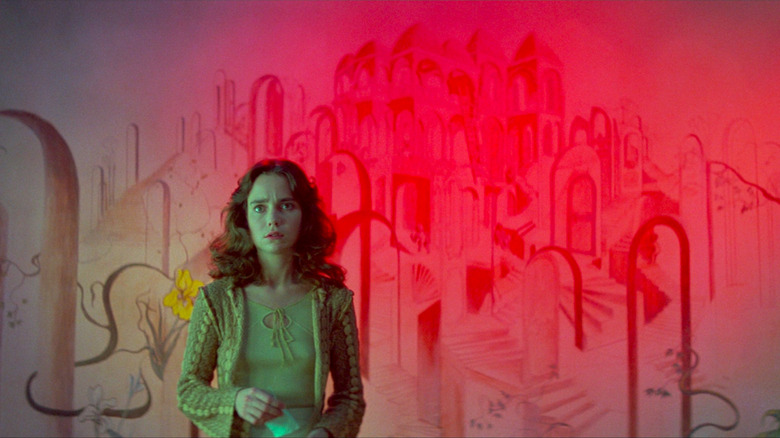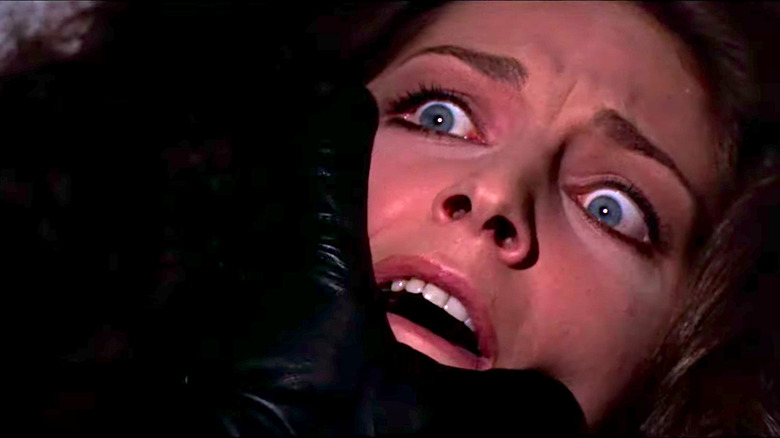On Every Film Dario Argento Asks His Actors For The Same Two Things
Italian director Dario Argento is a master of suspense and of subgenre now called giallo — an Italian style of horror that combines elements of mystery and suspense with over-the-top gore. He is most well known for his dizzyingly kaleidoscopic film "Suspiria" about a young woman who begins to question if the dance academy where she has recently enrolled is really as innocent a place as it seems. But Argento's career is also filled with other films that have made a name for themselves amongst horror fans like "The Bird with the Crystal Plumage" and "Deep Red." Most recently, he has returned to the giallo form with his new film "Dark Glasses," about a young sex worker who, after losing her sight, must do everything she can to outsmart the mysterious killer that is determined to end her life.
Over the years, Argento has worked with a variety of actors — even his daughter Asia Argento has starred in many of his films. Sometimes their performances are praised, and other times they are not, but they all have one thing in common. In order to help his actors immerse themselves in their roles, Argento always has one very specific piece of advice that he tells each of them to consider as they ready themselves to play his parts.
Staying true to themselves
In a recent interview with Vulture, Argento opened up about his approach to working with his actors. He himself has recently had a moment in front of the camera rather than behind it — he stars in Gaspar Noé's recent film "Vortex" — and he shared that the key to getting his actors to feel comfortable in their roles ultimately comes down to being true to who they are. "I ask the actors to be themselves," he says. "Every evening, before they leave the set, I repeat the same thing." And just what does Argento tell the stars of his films? He told them:
"For tomorrow's part, which you have in front of you, I want you to invent something. Something that belongs to you. Something personal. Something intimate. I want you to think of something about yourself and bring that to me."
This decision to allow his actors to inject some of their own personalities into the roles they play has a very specific purpose. "In this way, the actor enters more deeply into the film," Argento explained. "Then the film belongs to them as well, since they're putting an important part of themselves into it."
This approach is an interesting one since it asks his actors to find ways to identify with the people they portray on screen rather than leave their own personalities behind the minute the camera starts rolling. As viewers, we may never know what parts of Argento's characters are really just his actor's own personas shining through, but perhaps that is part of the magic and mystery Argento has spent decades cultivating on screen.

